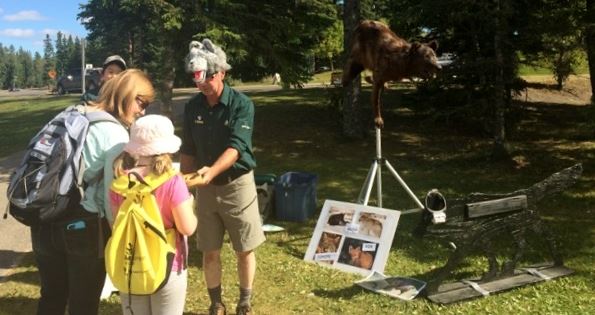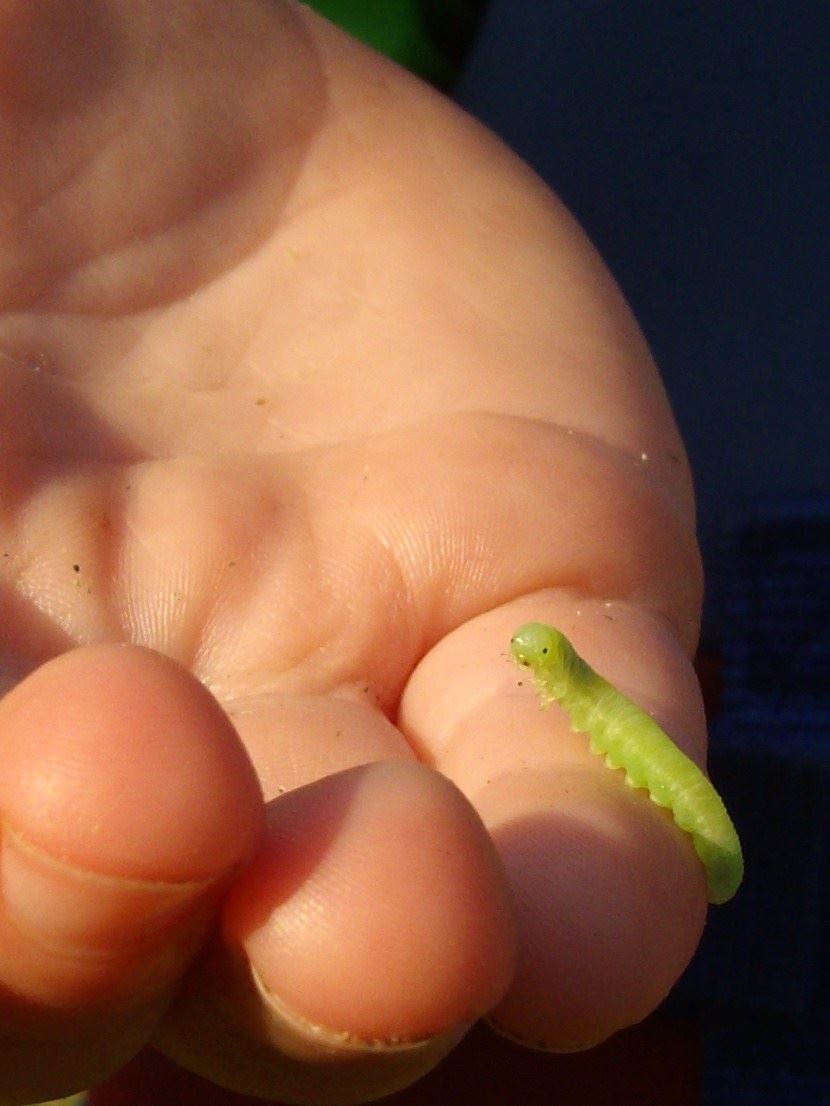by Marie Stradeski
Is it enough to respect nature? Will our technologically dependent urbanized society interfere with our children’s ability to bond with nature? How can we get more people to connect to the rhythms of the earth? How important is ‘dancing’ with nature to nurture the ‘wild’ within? These are some of the questions I wondered as I wandered into my thesis on ecological education.
The beat of my own drum advocates for the ideal of teaching reverence for nature. Reverence not only entails a deep respect but also requires wonder, awe and love. I believe that those who develop a reverence for nature will honour the inherent interconnectedness of all things and gain a healthy sense of belonging. This emotional bond to the earth heals us and is essential if we are to become stewards of that which brings us life.
Such an intimate connection doesn’t happen by occasional visits to a park. Ongoing direct experiences in the wilderness, away from the distractions of consumerism and technology, are necessary to form this intimate relationship. Teaching reverence for nature needs to be integrated throughout all curriculum so that three essential forms of knowing are developed:
1. Knowing oneself deeply; that is, connecting with one's true self;
2. Knowing one's connection to the living Earth, both ecologically and spiritually and
3. Knowing one's connection to the human community.
These ways of knowing are embedded in the eco-pedagogical framework I created for the Saskatoon Natural Grasslands Ecological Education Guide. The teacher guide has a lesson for each of the four themes for each grade from Kindergarten to Grade Eight. The four themes explore different ways of invoking a reverence for nature:
1. Awaken to Diversity
2. Appreciate Nature’s Symphony
3. Experience the Mystery
4. Tread Softly
Each lesson is comprised of three pedagogical components for teaching reverence for nature: 1) Rouse Interest; 2) Relate; and 3) Reflect. A different twist to the traditional three Rs that our education system has focused on in the past. But as my research attests, children will not commit to reducing, reusing and recycling if they have not developed a reverence for nature. If pressured to do so before that relationship develops, an eco-phobia could take root instead.
'Rouse Interest' activities provide the motivational set by building enthusiasm and focusing their attention for the direct experience in nature that is planned next. These activities relate to the first way of knowing, 'Knowing oneself deeply', in that they involve opportunities for students to get to know what they are interested in and prepares them to focus on their personal interest when they interact with nature. To rouse students' interest, these activities try to encompass the whole child by encouraging the use of the body through physical action, the mind through the sharing of knowledge, the spirit through the sharing of emotions and passions. The objective is for students to connect with one's true self so that they are better able to connect with other students, other beings in the wild and the wilderness itself.

Interpreter Brad Muir rousing interest before a Wolf Howl at which participants will directly experience what it is like to be a wolf exploring the park in the dark.
The 'Relate' activities provide direct experiences in nature in order for students to foster empathy with ecosystem members and to have students gain a sense of their own interconnectedness with nature. Spending time interacting with nature provides opportunities for students to experience the wonder and awe that nature inspires. The main goal for the 'Relate' activities is to give students many opportunities to build a relationship with nature. These activities relate to the second way of knowing, 'Knowing one's connection to the living Earth', because they provide direct experiences in nature that involve sensory exploration and personal discovery. The experiences of wonder and awe and the feelings of deep respect and love that students develop will eventually lead to a reverence for nature.
The 'Reflect' activities in the teacher guide process what they learned through creativity, imagination, and solitude and provide them with the opportunity to share and inspire others. If children are able to reflect on how nature connects with their own inner nature, the bond they have with nature will be strengthened. In getting to know nature at an intimate level, students are able to see that their place in the universe is to live as part, not apart from nature. If personal connections are made then students will welcome opportunities to conserve what has helped them feel whole. Because this section involves creative activities for students to share their inspirations to educate others in the community, it thus incorporates the 'Knowing one's connection to the human community'.

Teaching reverence for nature honours the individual nature of each individual as well as honouring humanity's interconnectedness with nature, human and non-human. As educators and/or interpreters, it is so important to nurture our own reverence for nature by spending time in the wilderness and connecting with the wildness within. Joseph Cornell (2001), an inspirational nature educator, claims:
"To communicate wonder, we must have a spirit of wonder. A leader who is filled with wonder, joy, and love for the natural world draws out these good feelings in others. In the presence of such a leader, people eagerly want to experience these same feelings for themselves.....An individual whose heart is filled with love and reverence for nature can make ecological attitudes come alive for others as nothing else can."
Let’s practise listening to the common pulse of our one and only planet earth, learn to dance to its wondrous rhythms with reverence and invite others to join in the celebration of life.
This article is derived from Marie's thesis on Teaching Reverence for Nature: An Eco-philosophical foundation for the Saskatoon Laurel Grasslands Ecological Education Guide and Kit. If you are interested in this research and would like an electronic copy of it, contact her at ecodreamer(at)icloud.com.